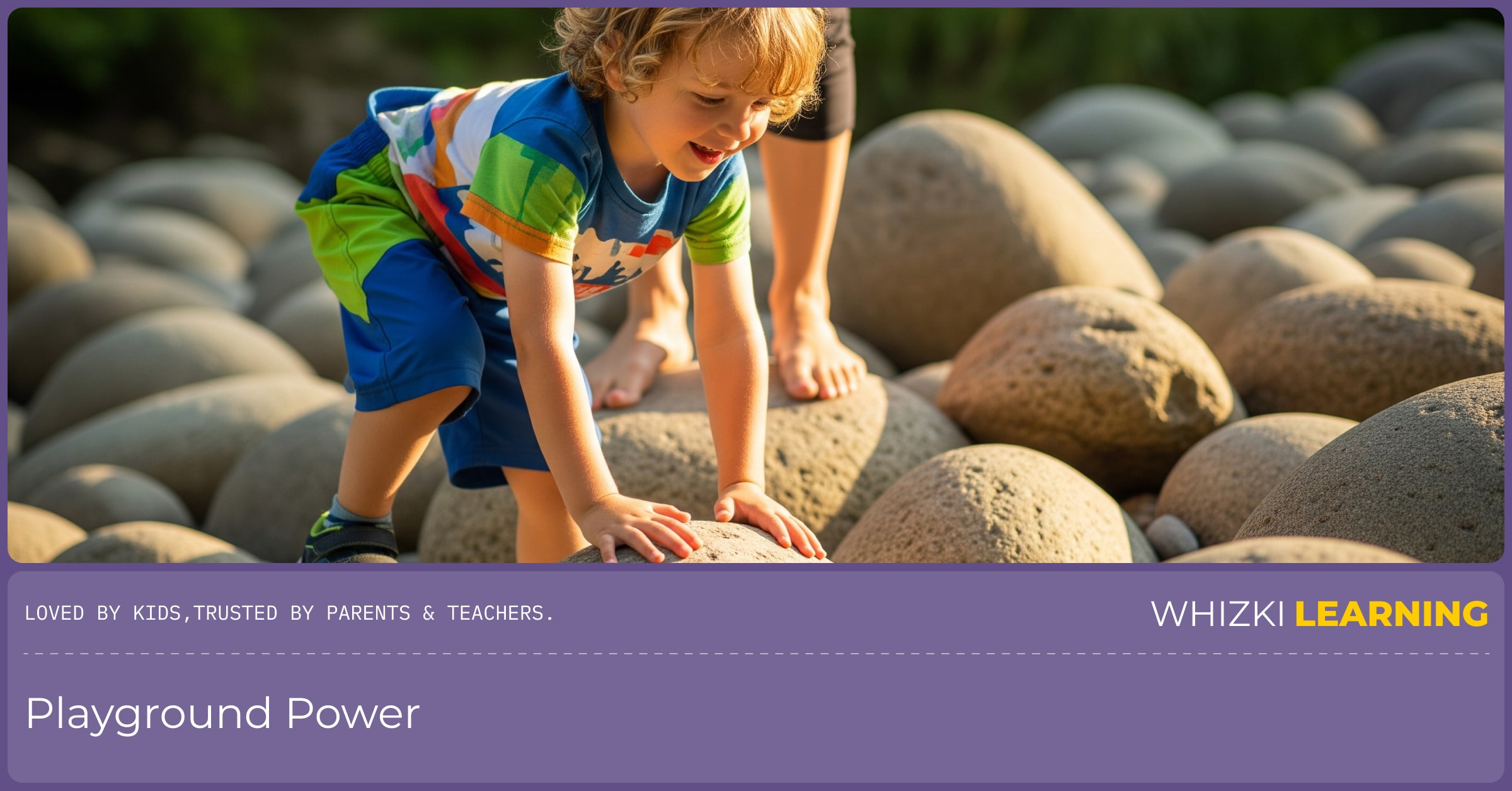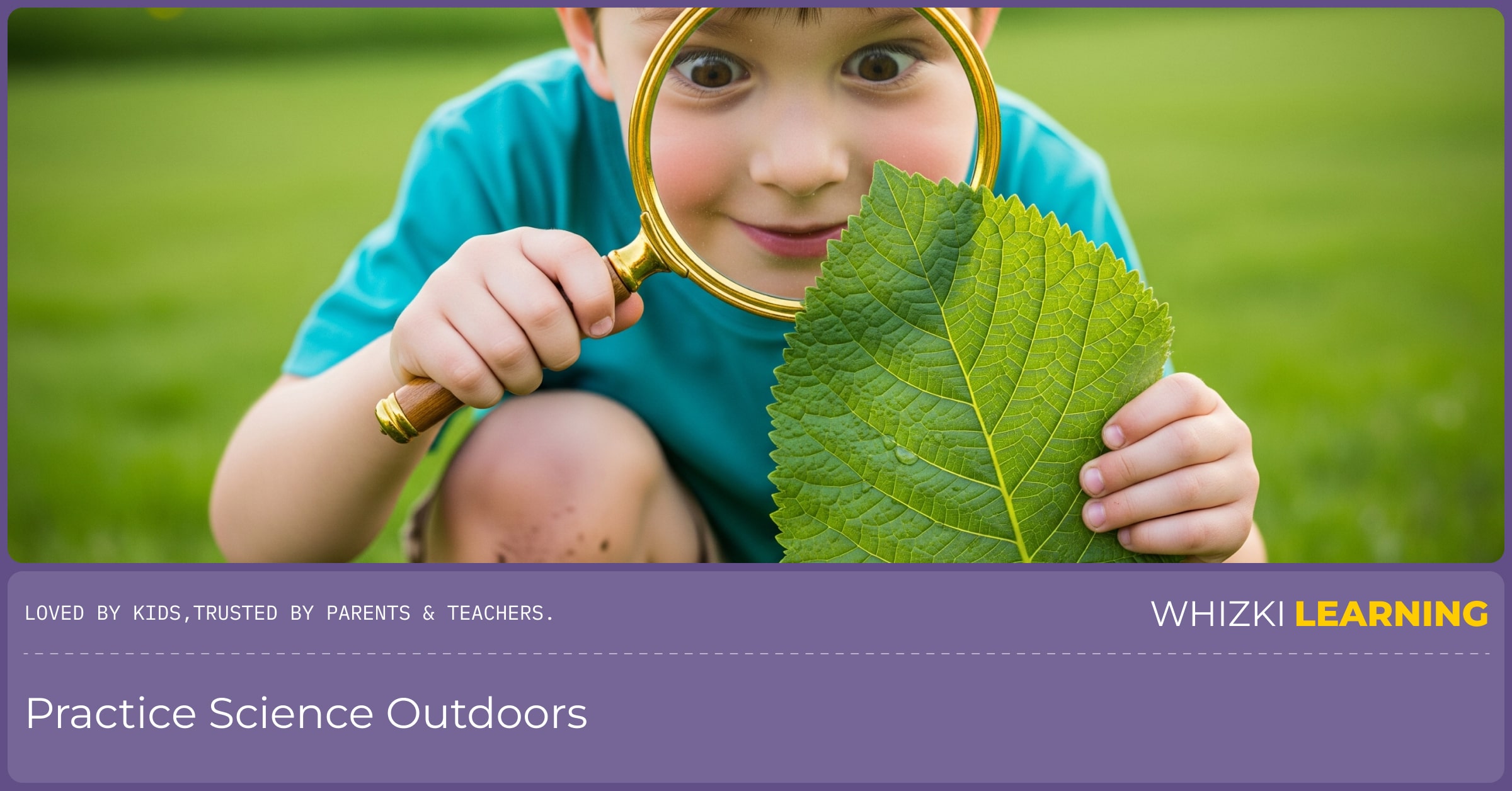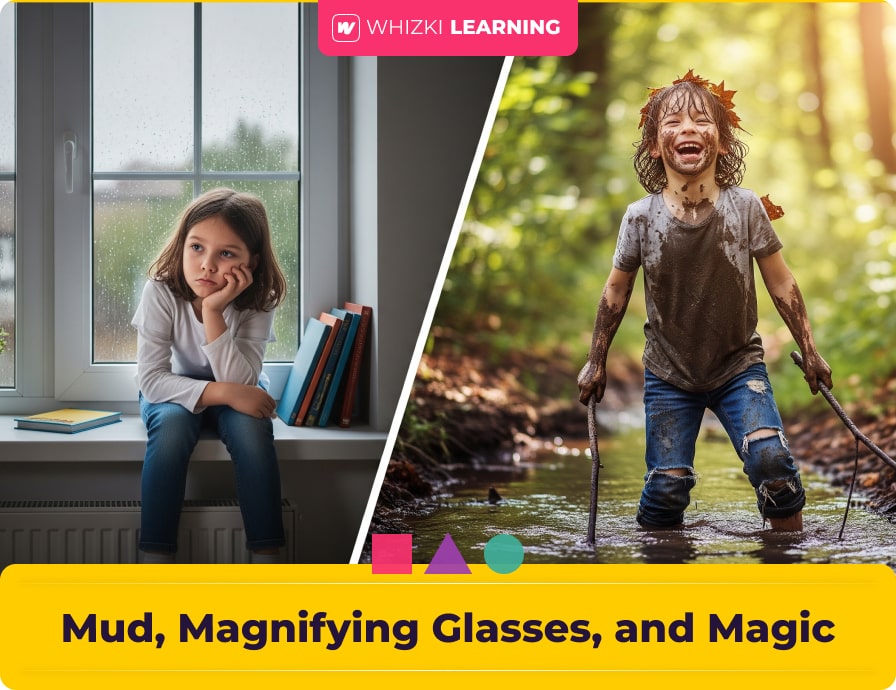Hey there, parents! The world outside is a symphony of colors, textures, and sounds-a perfect, natural playground waiting to be explored. In our mission to create meaningful, screen-free learning experiences, we often forget that the simplest, most powerful tool is just a step away. At Whizki Learning, we know that there is no substitute for a child being a child, and that means getting a little dirty, exploring new spaces, and letting their imagination run wild in the great outdoors.
This guide will help you embrace the chaos of outdoor play and show you how to turn a trip to the park or a walk in the backyard into a profound learning opportunity. From building forts to squishing mud, every moment outside is a chance for your child to learn, grow, and thrive.
Chapter 1: The 'Big Body Play' Advantage
Outdoor play is the ultimate workout for your child's entire body. Running, jumping, climbing, and balancing are all crucial for developing gross motor skills. This isn't just about building strong muscles; it's about building a strong foundation for all future learning. When your child has good body control and a strong core, they have the physical stability needed for more focused tasks, like handwriting. This is a key part of our philosophy and something we also discuss in our article on handwriting development.
How to Practice Gross Motor Skills Outdoors:
Playground Power: Let them climb, swing, and hang from the monkey bars. These activities are phenomenal for building core strength and upper body stability.
Nature Scavenger Hunts: Create a list of things to find (a smooth stone, a curly leaf, a feather). This turns a simple walk into an adventure that combines movement with observation skills.
Build a Fort: Use sticks, branches, and blankets to build a shelter. This is a fantastic lesson in spatial reasoning, teamwork, and problem-solving.

Chapter 2: The Magic of Sensory Exploration
The outdoors is the original sensory bin, with endless textures, smells, and sounds. Playing with mud, digging in the dirt, and feeling the grass between their fingers all provide rich sensory input that helps a child’s brain make crucial connections. This kind of hands-on exploration is a foundational part of sensory play and a critical step in a child's development. For more on this, you can read our article on Messy Play is Smart Play.
How to Practice Sensory Skills Outdoors:
Mud Kitchen: Set up a “kitchen” with old pots and spoons and let them mix dirt and water to their heart’s content. This is a wonderful way to introduce concepts of measurement and texture.
Nature Art: Collect leaves, sticks, and flowers to create art on the ground. This activity encourages creativity and an appreciation for nature’s beauty.
Go on a Sound Walk: Stop and listen. Ask your child what sounds they hear-a bird chirping, a plane flying, the wind rustling through the leaves. This is a simple but powerful way to build focused listening skills.
Chapter 3: Connecting with Nature and Science
Outdoor play is an incredible opportunity to introduce basic scientific principles and an appreciation for the natural world. Every leaf, every bug, and every puddle is a potential lesson. This kind of natural curiosity is what fuels a growth mindset and a lifelong love of learning. We believe this is the best way to introduce them to the world of science.
How to Practice Science Outdoors:
Bug Detective: Give your child a magnifying glass and let them explore. Ask them to find a bug and talk about what they see. This encourages observation and attention to detail, skills that are crucial for all learning.
Cloud Watching: Lie on the grass and look at the clouds. Talk about their shapes and make up stories about them. This is a fantastic way to spark their imagination and introduce them to the weather.
Gardening: Even a small pot of herbs can teach a child about life cycles, responsibility, and the magic of seeing something grow. This is a perfect example of a fun educational practice at home.

Outdoor play is the antidote to the pressures of a screen-centric world. It’s a gift of freedom, discovery, and connection. It’s where your child learns to be brave, curious, and resilient. Our mission at Whizki Learning is to provide tools that support this journey. Our educational workbooks, like our toddler workbooks, are designed to complement these hands-on adventures, offering a structured, screen-free way to reinforce the skills they learn outside. Ready to go on an adventure? Explore our full collection of educational workbooks today!






